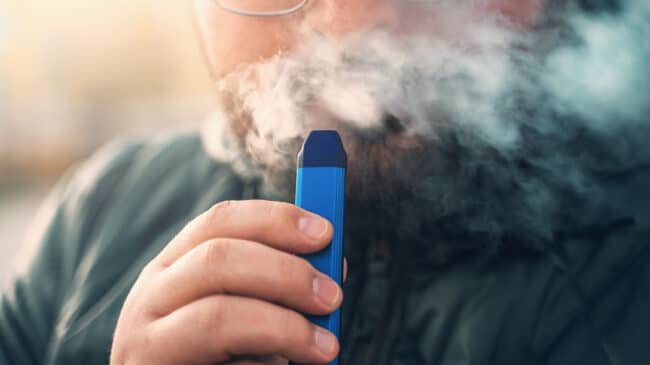The Food and Drug Administration is facing backlash from anti-vaping members of Congress and other public-health campaigners for officially authorizing an e-cigarette as “appropriate for the protection of public health.”
The FDA’s decision to approve the Vuse Solo e-cigarette last month is a historic one: It marks the first time that America’s leading public-health agency officially recognized the potential of e-cigarettes to help smokers quit.
“The manufacturer’s data demonstrates its tobacco-flavored products could benefit addicted adult smokers who switch to these products — either completely or with a significant reduction in cigarette consumption,” said Mitch Zeller, head of the FDA’s Center for Tobacco Products.
The FDA’s decision is both welcome and overdue. Indeed, it’s been clear for many years that e-cigarettes are dramatically safer than combustible cigarettes; the evidence base that supports it is overwhelming to boot. The U.S. has nevertheless consistently lagged behind other countries — such as the U.K., France, and New Zealand — in recognizing the science of tobacco harm reduction.
Yet rather than heed the FDA’s guidance — and listen to the science on the potentially lifesaving benefits of e-cigarette products — anti-vaping advocates have charged that the agency has made a terrible choice.
For years, the media have pushed scare stories about e-cigarettes; anti-vaping activists have done likewise, sowing doubt in the minds of voters and lawmakers as to whether these products truly are safer than smoking. The FDA’s approval of Vuse should end the fear-mongering and misinformation that has plagued this topic.
Sadly, it won’t. Take vaping opponents in Congress, who appear to be rejecting the evidence altogether.
“While I am pleased that FDA denied requests by the manufacturer to market certain flavors, I remain concerned given this product’s popularity with youth,” said Represenative Frank Pallone (D., N.J.), a co-sponsor of the 2009 Tobacco Control Act (TCA), which gave the FDA the responsibility for approving vaping products.
Another booster for the TCA was Senate majority whip Dick Durbin (D., Ill.), who is now concerned about “how the agency is applying its risk framework.”
The most brazen denouncement since the FDA’s decision came from Representative Raja Krishnamoorthi (D., Ill.). “FDA has turned its back on the public health by approving a high-nicotine e-cigarette,” the congressman stated in a press release. “[The agency] has ignored the data and missed another opportunity to address the youth vaping epidemic.”
Preventing tobacco use among minors is, of course, a worthy goal. But what the congressman and others neglect to mention is that youth vaping had been trending down before the pandemic and has declined by 60 percent in the last two years. Furthermore, youth use of the newly approved Vuse Solo products is so low that it can’t be reliably measured. A recent FDA survey showed that a little more than 1 percent of all high-school students used Vuse products in the past 30 days.
Anti-vaping campaigners increasingly appear to be fighting yesterday’s war.
The public should ignore the hysterical claims of those who have made political capital out of demonizing products that have effectively helped millions to quit smoking. Instead of fighting against a safer smoking alternative that has little appeal to youth, anti-vaping campaigners should ask a more fundamental question: Why has only one product been approved while others have been rejected?
In short, such products have been rejected because their firms lack the requisite legal and financial support to make it through a years-long regulatory process and because the FDA has adopted a narrow standard for approval. That arduous approval process is thanks to those who supported the TCA.
The FDA’s process for approving e-cigarettes is unlike any other public-health approval process in the world. Every single e-cigarette product, of which there are millions, must be reviewed to investigate how it will affect the health of smokers and that of the entire population.
R.J. Reynolds, which manufacturers the Vuse Solo products, is a multibillion-dollar company and can afford to comply with the FDA’s current regulatory regime. But the agency has rejected millions of other e-cigarette applications from smaller manufacturers. It would be wrong to assume that these products are inherently more dangerous than Reynolds’s.
To be sure, the FDA’s decision on Vuse Solo should be applauded. No longer can it be claimed that the public-health agency doesn’t recognize the basic science that vaping is safer than smoking. But the FDA’s process remains in desperate need of reform. If vaping is to replace smoking, the status quo in which only the largest companies with the deepest pockets can bring their products to market must change.
A version of this column previously appeared in National Review Capital Matters.

